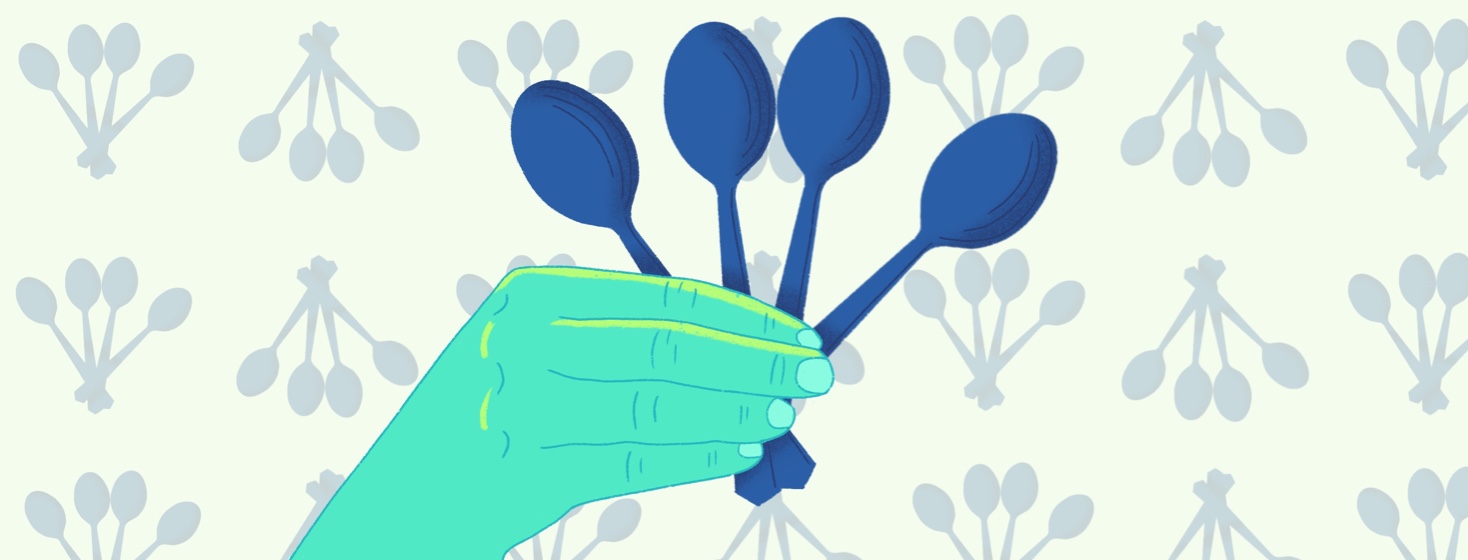Spoon Theory for Bladder Cancer
Having been in the chronically ill health circles for years in varying capacities, I am still surprised that more people are unfamiliar with the Spoon Theory. Recently, I have been thinking of this more as I have gotten much pickier and stingier with my time and energy than I once was.
Here, there, and everywhere
Before bladder cancer, I was very active both with my life and my community. I volunteered for my high school, its athletic department, and its alumni foundation. Some student-athletes referred to me as the "Every Team's Mom," although I have no kids! Every winter, I volunteered with the wrestling team by helping supervise practice using multiple rooms and driving the teens to and from their meets, an all-day event on the weekends. If they needed something and my scheduled allowed it, I was there. If there was an athletic event and I had no conflicts, I was there. I walked at least 3 miles a day and worked out 3 to 5 times per week. I also helped out with close friends' families when there was a need. I was an active person!
An inevitable bladder cancer slow down
Since bladder cancer, I have struggled with chemo-induced neuropathy and chronic chemo-induced fatigue. My life has slowed its pace quite a bit. That is not necessarily bad, but sometimes I long for those more active, in-person encounters, which have obviously been greatly reduced and affected by the pandemic.
These days, I do much better with practicing Spoon Theory for myself.
The spoon theory
In 2003, Christine Miserandino penned an essay in which she coined the phrase Spoon Theory. She used the Spoon Theory as a metaphor for the amount of physical and mental energy an individual has for each day. Each activity that you commit to uses up your spoons for the day. When you have no more spoons left, you have no more capacity to take anything else on for that day.1
Implementing spoon theory
Many people who consider themselves "spoonies," a person who utilizes Spoon Theory, often plan their days out ahead of time, so they do not overextend themselves. Overextending oneself when you have a chronic condition often leads to other issues, including disease complications, exhaustion, and dehydration. If you have 12 spoons daily but 20 tasks, the math does not add up. One has to plan things out and spread out the high-energy tasks to take care of oneself.
For example, I live in a 4 unit apartment building. I live on the second floor. The laundry is in the basement. When factoring in my neuropathy and fatigue, that task is a high cost in energy for me. I have to start this early in the day and be around all day to make the trips up and down with all the laundry safely. At the end of laundry day, I am utterly and completely exhausted.
Bladder cancer spoonies
For many of us, bladder cancer becomes a chronic condition. Some retain their bladders, constantly getting cystoscopies and testing. Worries about recurrences are ever-present. Some of us get rid of our bladders but deal with the urinary diversion of our choice, which in and of itself is a chronic condition. Many of us experience chemotherapy and/or immunotherapy, which can leave lasting effects on our bodies. These things can take a toll on our mental and physical health if we do not set boundaries and listen to our limits.
A begrudging spoonie
As I approach 5 years of no evidence of disease, I now consider myself a spoonie. Albeit, begrudgingly, but I do. I really have to be cognizant of my time and energy. I say no more frequently. I decline to join every single offer that comes my way. I schedule breaks into my day. I have even transitioned to working from home so I can better take care of myself.
Practicing spoon theory has helped me make improvements to my life and allowed me to take better care of myself while tackling issues with the diagnoses I have due to bladder cancer.
Are you a bladder cancer spoonie? If so, tell us about your experience in the comments below, or share your story with the community.

Join the conversation